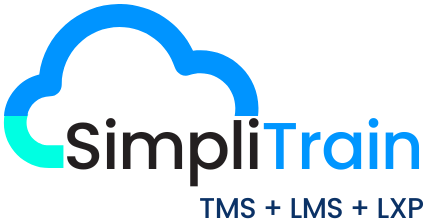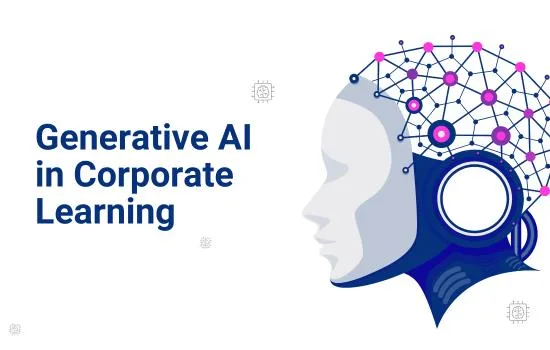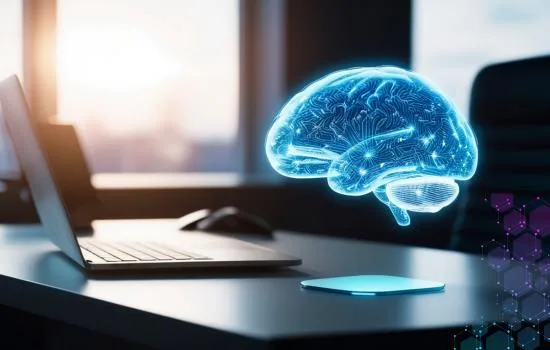The online marketplace demands customer education as a fundamental competitive element for businesses. Modern products with increasing complexity require businesses to provide instant success to users who expect fast advantages from their purchases. The challenge exists to provide individualized training at scale because organizations face numerous consumer segments together with different learning styles and skill levels without overburdening their staff members.
The key to delivering personalized learning experiences at scale exists through consumer education which AI provides. Machine learning (ML) enables current educational systems to perform automated assistance and personalized information delivery and behavioral learning beyond what was possible just a few years ago.
This blog examines the ways artificial intelligence transforms customer education training while also transforming HR and L&D customer experience training.
How AI Personalizes Customer Learning Experiences
1. AI-Powered Customer Segmentation
The machine learning algorithms process customer data to identify relevant groups through patterns in behavior and usage together with industry background and role and previous engagement levels. The customer personas direct the development of customized training paths along with tailored messaging and resource allocation.
For example:
- The startup users who join the platform receive an onboarding path which focuses on quick start methods.
- Power-user customers who operate within enterprise environments receive tutorials about advanced features and automated workflow guides..
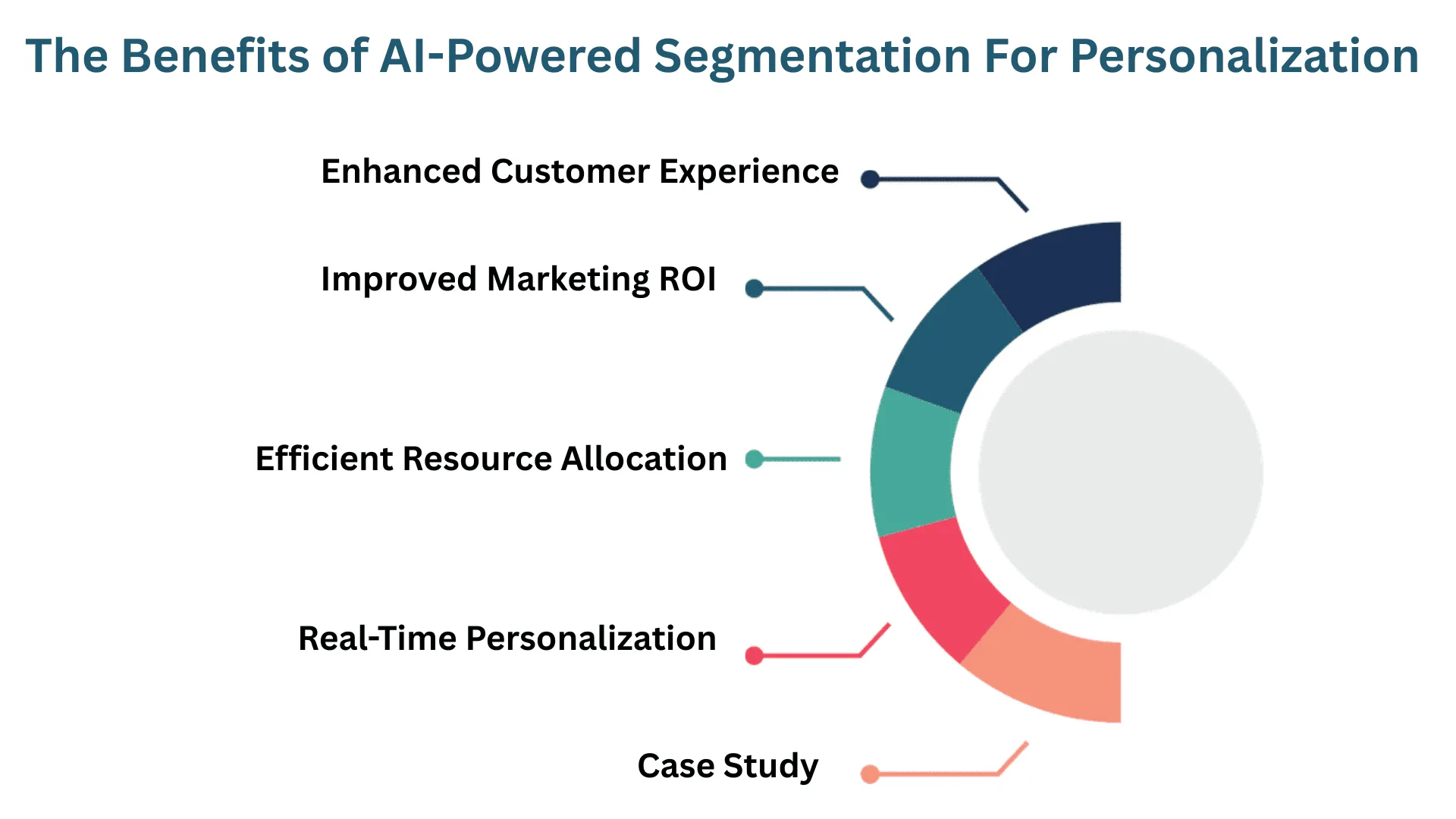
2. Auto-Suggested Learning Paths
AI-powered training platforms function like Netflix shows to suggest appropriate learning modules by analyzing customer profiles together with their previous actions and current objectives.
Use Case:
A project manager using a task management tool logs in. Based on their interactions and preferences, the system recommends a learning path focusing on team collaboration features, leaving out unnecessary technical content meant for admins.
These auto-suggestions reduce cognitive load and accelerate time-to-value.
3. Adaptive Learning within Personalized LMS
An AI-based Learning Management System (LMS) allows personalization and real-time modifications according to the learner’s journey. For example, if the user tries to learn something and is struggling, the system can provide simpler/explained content, additional reading materials, or simpler interacting quizzes. On the other hand, advanced users can skip ahead and delve into the advanced features.
Benefits:
- Enhances user engagement through relevant content.
- Enhances user engagement through relevant content.
- Increases knowledge retention by optimizing the learner’s pace.
Advantages of Adaptive Learning
Adaptive learning is effective for both corporate and educational environments. While the scale of the change can be hard to grasp, I’m sure that, at a minimum, you understand the fundamental benefits..
The following are the long-term advantages of an adaptive learning platform:
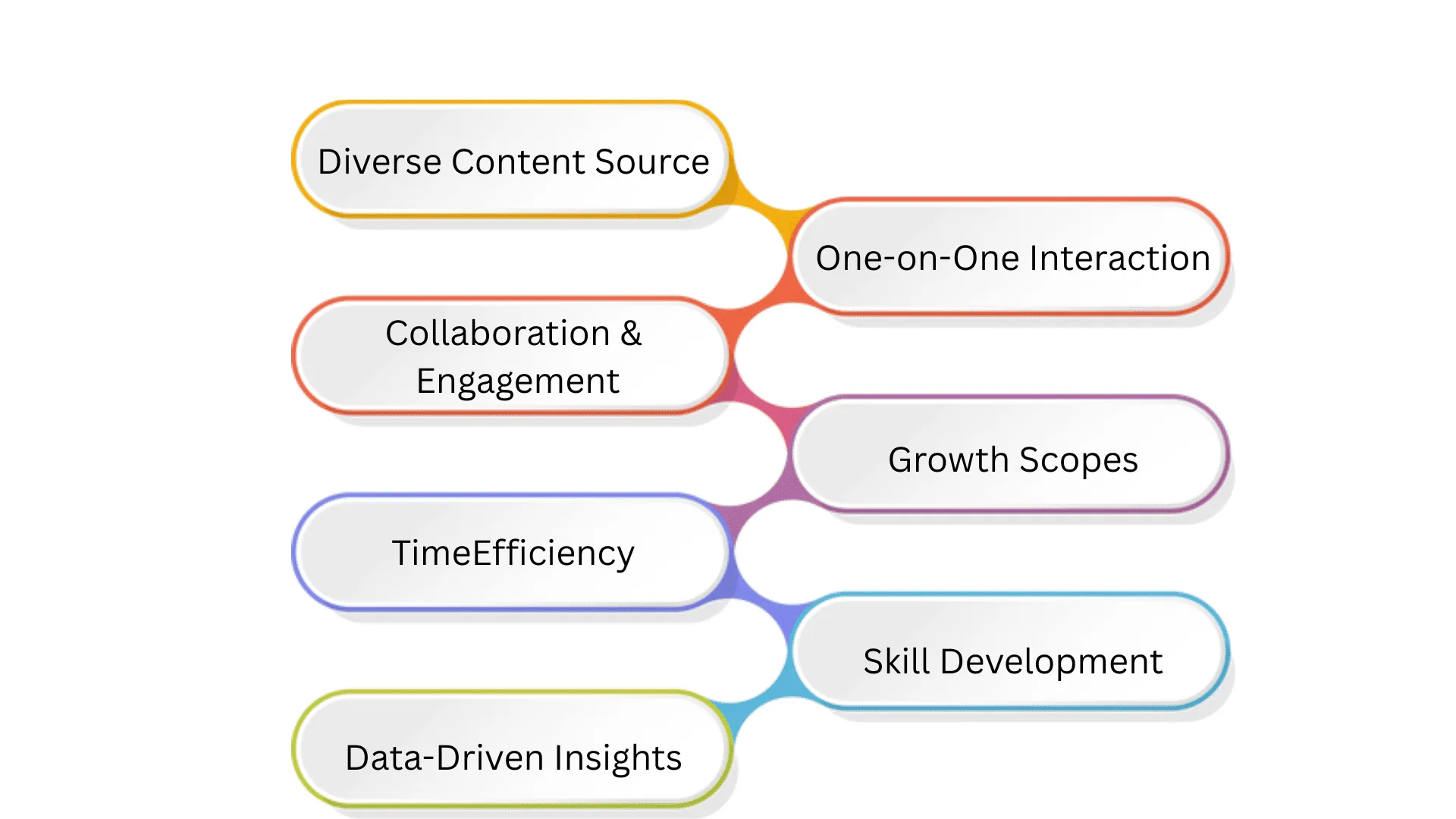
4. Chatbot Support for Just-in-Time Learning
As 24/7 learning aides, AI chatbots guide users on product walkthroughs, responds to FAQs, and even suggest training materials based on users’ actions and engagement.
Use Case:
Imagine a user trying to configure analytics on a SaaS dashboard and gets stuck. Instead of submitting a support ticket, the user receives assistance in the form of a short tutorial video or a step-by-step walkthrough.
Such support systems powered by AI help in alleviating support volume and fostering a culture of confidence through effortless self-service.
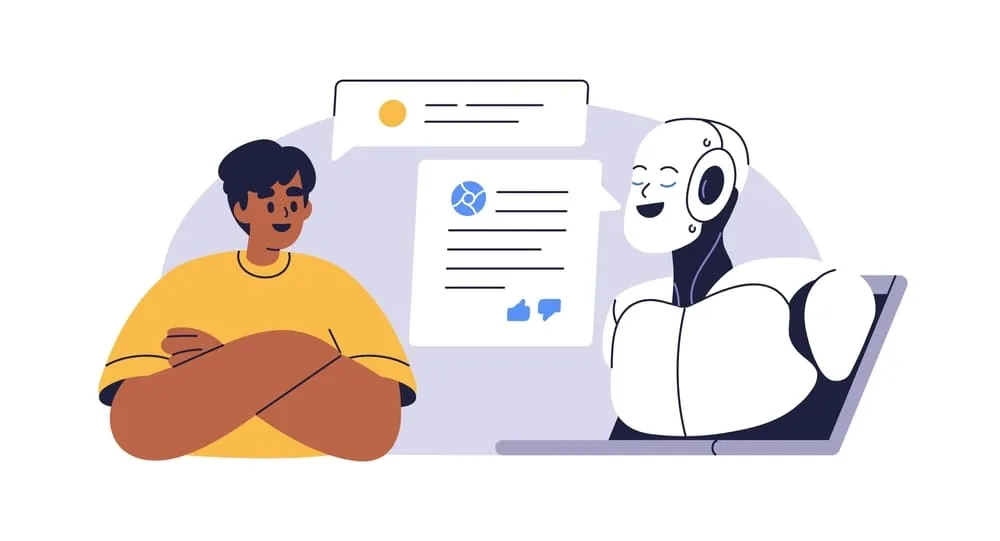
5. AI Integration in Microlearning
Micro-learning, the strategy of delivering training content in brief, focused segments, is enhanced by AI technologies. AI is capable of remembering and tracking users’ past interactions, making it easy to know the users’ needs, recommend follow-up materials, and set the order for micro-lessons to be taught.
As an example, the AI can guide consumers through a product setup and then suggest advanced tutorials or product troubleshooting to support continuous learning.
Real-World Applications of AI in Customer Education
- SaaS Companies: Different sectors like finance and healthcare can be catered to with AI-based persona detection for more tailored onboarding.
- eCommerce Platforms: AI can recommend courses on inventory management or marketing tailored to sellers’ scale and sales patterns.
- B2B Enterprises: Personalized LMS offerings for training on enterprise software can be tailored to learner progression.
The Future of AI in Customer Education
The ability for hyper-personalization expands as AI algorithms continue to advance. Imagine a system that goes beyond simply adjusting content to:
- Recognize emotion during a cognitive task.
- Employ voice-activated virtual pedagogues.
- Modify training pathways continuously based on goals, feature updates, or prioritized goals.
The future is not simply scalable. It is profoundly user-centric, responsive, and intelligent.
Final Thoughts
AI has powered hyper-personalization in customer education and is transforming customer training as it continuously engages and retains users. With functions such as Learning Management Systems (LMS) with hyper-personalization features, auto-suggested pathways, and AI chatbots, companies are able to provide scalable and effective learning experiences.
AI in customer education is not optional. In a landscape where customer success hinges on agile and proficient product mastery, it has become a necessity.
Are you ready to embrace AI for transforming customer training?
With SimpliTrain discover how the latest technologies can craft compelling, personalized lessons that deliver to your specific requirements.
